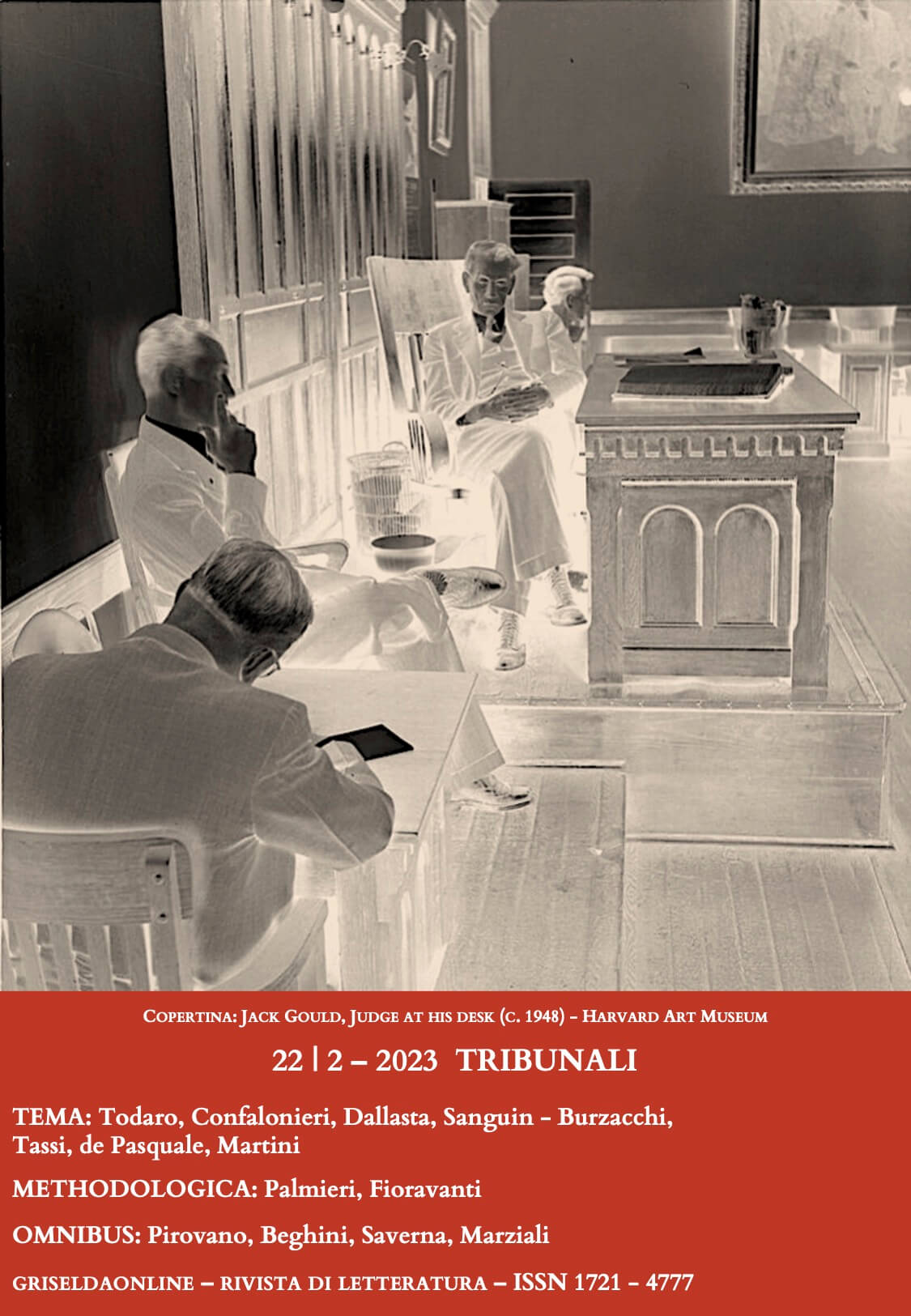All the guilt. «Il mestiere di vivere» as a judicial court
DOI:
https://doi.org/10.6092/issn.1721-4777/15982Keywords:
Cesare Pavese, confessione letteraria, diario come tribunale, «Mestiere di vivere», teoria del diarioAbstract
In the initial phase of his diary – Il mestiere di vivere (1936-1938) – Cesare Pavese employs writing as a sort of judicial court, where the ego undergoes the procedures of a ruthless and accusatory self-examination. This essay aims to demonstrate how the autobiographical procedural system, primarily employed by Rousseau and also found in the diaries of Tolstoy and Kafka, transforms the journal into a theatrical and gratuitous «self-performance». This spectacle disguises itself as an ethical conduct examination, only to culminate in a sterile representation of «maudlin self-pity». In this regard, the process of self-condemnation is confused with a narcissistic stage, where the humiliation of the diarist hides a masked and cathartic glorification of his ego, following the model observed by Baudelaire in Rousseau’s Confessions.
Downloads
Published
How to Cite
Issue
Section
License
Copyright (c) 2023 Ivan Tassi

This work is licensed under a Creative Commons Attribution-ShareAlike 4.0 International License.





